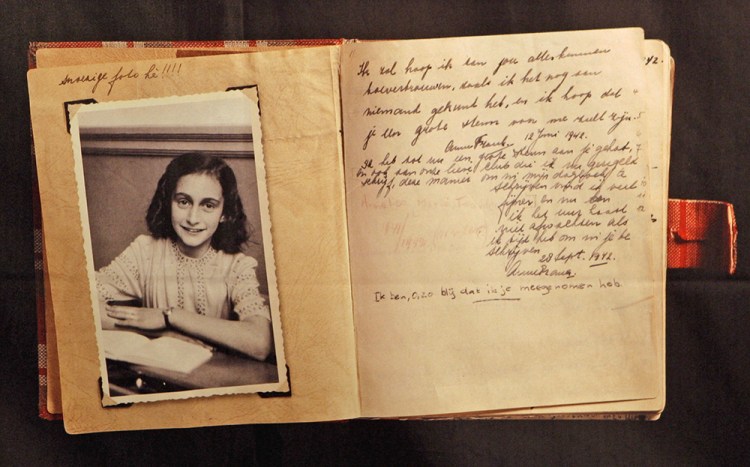For two years, Anne Frank’s family hid in secret rooms in Amsterdam, knowing that a curtain left open by mistake, a wayward noise or a nervous conspirator’s phone call to the Nazis could land them all in concentration camps.
The worst happened on a summer day in 1944, when investigators discovered their secret world behind a movable bookcase.
Of the eight Jews hiding, seven died before the Holocaust was over, including Anne, whose diary was a testament to the horrors of the Nazi regime. She died of typhus at age 15 at Bergen-Belsen camp in Germany.
And for decades, her father Otto tried to figure out who tipped off the Nazis – a question historians have debated for 72 years.
Now, the Anne Frank House museum in Amsterdam has put forth a new theory:
Maybe it was all just a coincidence.
For decades, the common theory has been that Anne Frank’s family was betrayed, possibly by a new employee at her father’s business or a conspirator’s wife unsympathetic to the plight of the eight Jews hiding from Nazis in secret rooms.
But, according to a research paper published this month by the Anne Frank House museum in Amsterdam, “this explicit focus on betrayal, however, limits the perspective of the arrest …other scenarios tend to be overshadowed.”
Historians’ theories were based on Otto Frank’s suspicions, which centered on Willem van Maaren, a new employee who hadn’t been let in on the secret about the hiding place.
But no one has cast serious doubts about the betrayal theory – until now.
In part, that’s because historians believed the three investigators who found the Jews hiding in the Opekta building were members of the Sicherheitsdienst, which tracked down potential enemies of Hitler’s Nazi regime.
But new information uncovered by researchers showed the three men Otto Frank later identified as the investigators weren’t looking for enemies of Nazis, but were likely assigned to track down people committing ration card fraud. or dodging service in the military – not hunting down Jews.
Send questions/comments to the editors.



Success. Please wait for the page to reload. If the page does not reload within 5 seconds, please refresh the page.
Enter your email and password to access comments.
Hi, to comment on stories you must . This profile is in addition to your subscription and website login.
Already have a commenting profile? .
Invalid username/password.
Please check your email to confirm and complete your registration.
Only subscribers are eligible to post comments. Please subscribe or login first for digital access. Here’s why.
Use the form below to reset your password. When you've submitted your account email, we will send an email with a reset code.